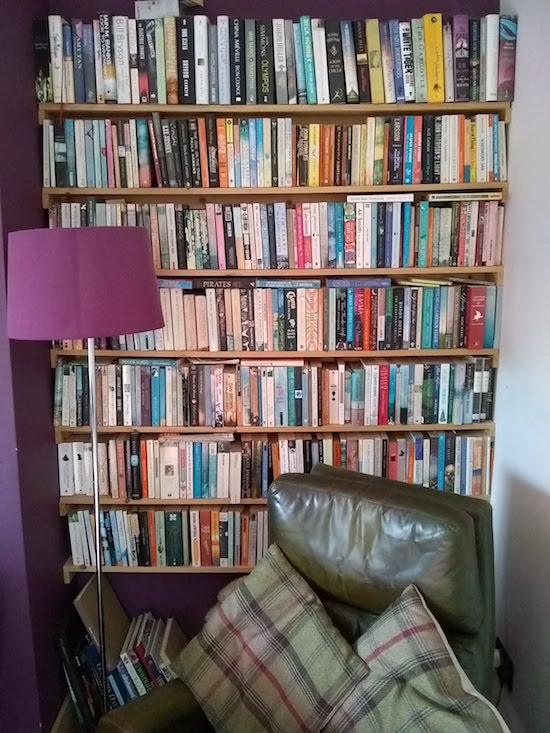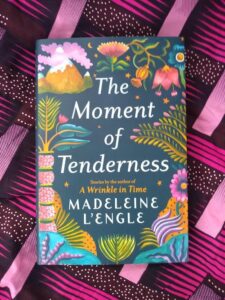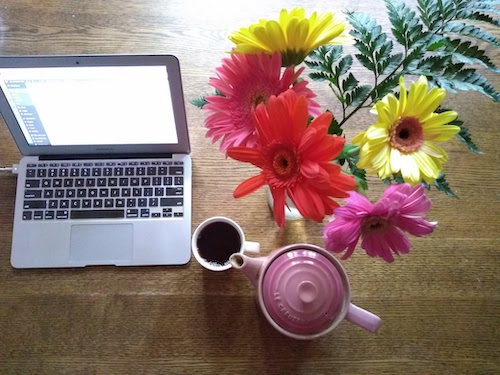July 6, 2020
Not for Me

In the 21st century, it almost seems radical to dislike something in non-declarative terms. Not even with a “meh,” which is more disdainful than it seems, but instead something more along the lines of, “I tried this, and it’s not for me.”
My new thing is easing out of having strong negative opinions, unless the strong negative opinion is super interesting and worth delving into. But more often than that ever being the case, strong negative opinions seem to me to be a fancy way to dress up the fact that one simply doesn’t like a certain thing. Or maybe what I’m saying is that you needn’t necessarily develop an elaborate theory as to why a piece of art is not to your taste.
(I’m still figuring this out. It’s an ongoing process.)
I’m thinking about this because Ottessa Mosfeigh has a new novel out, and people are excited, and whenever people are excited about a novel, I want to be excited about it too. But I think I just don’t like the work of Ottessa Mosfeigh. I read Eileen and it was interesting enough, but when I finished it, I kind of thought I’d read all the Mosfeigh I wanted to read for this life. And then last summer, friends were reading My Year of Rest and Relaxation, and loving it, so I decided to give it a chance—but it was the kind of book I rejoiced at finally finishing at the fact of its being over. Even as I recognize, I do, what other readers find remarkable about it, even appealing, but it doesn’t work on me, I think. I am insusceptible to Mosfeigh’s spells.
I also (forgive me please) didn’t see the point of Jenny Offill’s Department of Speculation. It didn’t work for me. I don’t understand the appeal of “art monsterdom” anyway (could a distaste for monstrousness be at the root of my feelings about these books, I wonder?). I own a copy and at least it’s short, so I’ve been able to read it more than once, to try to figure out what everyone else was seeing in it—and I’m not quite ready to abandon Offill yet, but I don’t want to shell out cash for her latest novel either (it’s hardcover!) so am on the library holds list, where I’ll probably be waiting for hundreds of years.
Now, of course, there are plenty of books I do think are terrible, and if we ever meet up for a drink, I’ll probably tell you all about them, but I’m thinking about something different here, things that are good that I still don’t like, and how that’s okay, both for me and the people who like them.
July 3, 2020
The Moment of Tenderness, by Madeleine L’Engle

It’s a gamble, a collection of previously unpublished short stories discovered after an author’s death, particularly if, as with The Moment of Tenderness, by Madeleine L’Engle, most of these works were written during her wilderness years, after she’d achieved only modest commercial success with her novels and hadn’t yet published A Wrinkle in Time. Even worse, I read her first novel The Small Rain last year, and I thought it was pretty awful.
So what was I getting into with this new book, in hardcover no less, bewitched by the gorgeous cover design, and its prominent display in a local bookshop window?
Mercifully, it all turned out fine. And that nearly all these stories are worlds away from A Wrinkle in Time actually suits me, as I’m much more a fan of L’Engle’s realism anyway. Many of these stories autobiographical and laid out as a coming-of-age, with child protagonists at the beginning, growing older as the stories progress. Many of these feature a character called Madeleine, even married to a man called Hugh Franklin, as L’Engle was, though Madeleine L’Engle’s husband was on All My Children, and the Hugh Franklin in the book runs a general store. (And as always, it is this way that L’Engle blurs fiction and reality that I find as fascinating as any questions posed by sci-fi or fantasy.)
The middle stories were my favourite, New England fiction that channelled Shirley Jackson, who was L’Engle’s near contemporary. One of the stories even features witches. Others recall the works of John Cheever, stories of suburban dissatisfaction. And there’s even a turn to the Southern Gothic–L’Engle had a transient childhood, but roots in the south.
I loved reading this book, though I am not sure it’s necessarily going to appeal to anybody who ever had a thing for Meg Murry. For L’Engle completists however, and also short story fans, there is so much to delight in.
July 2, 2020
Things I Like

I am sorry I’ve been out of touch. Except for social media updates, of course. And we’ve been getting together with friends in our neighbourhood, picnics in the park, but the idea of anything further afield kind of overwhelms me. By April, I was done with Zoom. And my world is so small right now, wedded to routine, that any deviation throws me for a loop. I’ve always been a bit like this, but living in pandemic times is even more so—and as real life begins to return again, it’s something I’m going to have to work on, at least if I want to continue to have friends, which I do.
But in the meantime, I read on the couch every night—which is kind of my ideal situation, to be honest. And I’ve tried to balance going to nobody’s online literary event by buying and reading all the books instead—even in the before-times, I’ve always preferred partying alone with my book to going to a book party anyway.
And when I’m not reading, there are a few other things that I’m getting up to, things that help me measure out my days and bring me joy, which is why I want to share them with you.
Jen Knoch’s Tuesday newsletter is fabulous reading, rich and thoughtful with smart ideas about our environmental impact. I look forward to it every week and you should sign up too!
I’m not a metal fan (you are SHOCKED, I know), but “Wind of Change”, by Scorpions has long been a fascination of mine, along with Cold War history, so I was intrigued by this podcast exploring rumours about whether the song had been a project of the CIA—and it’s by Patrick Radden-Keefe whose book about the IRA Say Nothing was a favourite in our household this year. The podcast is fun, but really interestingly explores ideas about propaganda as it progresses (is the podcast itself propaganda, Radden-Keefe wonders?).
We call this “The Trashy Podcast” at our house, but it’s also smart and interesting—the episode with Congresswoman Katie Porter was unforgettable. To be honest, co-host Rick Wilson is not my fave, a former Republican strategist whose work is responsible for the mess we’re in—he refuses to see a possibility of politics not having to be a dirty game, but he likes himself enough that my feelings are never going to matter—but Molly Jong-Fast is great, and it’s the kind of perspective on American politics I appreciate right now, one that refuses to take the Ding Dong President seriously.
There are some stand-out moments in the blur of these times, and the weekend of The Big Lasagne at the end of April was one of them. (It was actually too hot to be cooking lasagne that weekend, and I was reading Writers and Lovers, by Lily King. It was lovely.) Samin Nosrat, of Salt, Fat, Acid, Heat fame, decided that people the world over could cook lasagne together, and so we joined her, making SmittenKitchen’s recipe that involved two days of prep and fresh pasta. It was amazing and our lasagne even got reposted on the New York Times Cooking Instagram feed, which might be as close as I ever come to being in that paper.
Things delivered to my door have also been a real delight—books, donuts, popsicles, and more!—but Spade and Spoon is my absolute favourite. We were almost out of maple syrup one day in April when they first came to our service, and we bought jam too, lots of jam, and pickles. Every two weeks they’ve been delivering their products to the GTA, and we’ve ordered quite a few times. Nothing tops the pickled asparagus though. So so delicious.
When I read Madeleine L’Engle’s Austin series last year (which I haven’t mentioned for at least five minutes!) I felt very sensible for having borrowed each book from the library, but there came a moment in April where not having these books in hand was no longer acceptable, so I ordered them all, speaking of deliveries. The best thing? They’re kids’ books so five of them is not much more expensive than a regular hardcover. (In my mind, this basically constitutes making money…which is one of many reasons why I am not rich.) And then I started to read them with my family, and everybody’s enjoying them—we’re halfway through The Moon By Night. I can’t WAIT to read The Young Unicorns with them! Previously, I’d thought perhaps these books with their ominous undertones was too dark for family read-alouds (as Vicky Austin contemplates the genocide of Indigenous peoples and fears nuclear holocaust) but it doesn’t feel like that anymore.
I miss swimming. It’s been over a hundred days since my last morning swim and my towel and bathing are still hanging over the banister where I hung them, but I am filling the void with morning yoga classes online with the YMCA of Greater Toronto, which similarly let me start my day with my body feeling good. Our favourite teacher is Nazia White, and we love her. The YMCA is moving to a summer schedule next week so there might be less yoga in the offering, but we might double up on the classes, because a daily dose is a very good thing.
July 1, 2020
Leftover Spaghetti Frittata (or We’ve Come a Long Way)

I made leftover spaghetti frittata for the first time at the end of March. This was when I kept scrolling news in hopes of good news, and there was none. I kept checking in on food writer @emikodavies under lockdown in Italy, and it was some solace to see her family’s daily life continuing, albeit in confinement. If they could keep going, so could I, was my reasoning. The recipe she posted in her feed also appealed to me for its frugalness. This was in my “reusing parchment paper” phase, when I was worried about food availability. It made a meal that was as comforting as it was delicious.
I do not think the pandemic is over. And I WOULD go into detail about our rituals, the ways we’re taking precautions, but I won’t, because reading such posts from other people makes me anxious. Suffice it to say, however, that we have not returned to business as usual. But we have also found ways, in this new reality, to reclaim joy and pleasure, and it’s not at all as incongruous as a lot of people might think.
I do not think the pandemic is over, but I really want to celebrate how far we’ve come since that dismal day in late March when I first poured eggs into my spaghetti. I think a fixation on US politics here in Canada has confused many people about the many ways their situation is different from our own. And there are, of course, a hundred other reasons to be lugubrious right now…but we’re still here, and now it’s summer, basil blooming in my garden, which I mixed into our frittata today.
There have been unfathomable losses, it’s true, but things are better now, infection rates here in Ontario continue to be low, community spread decreasingly a factor. The pandemic is not over, but do you not see still what a wonderful thing this is? That we are not without reasons to be hopeful after all?
I am going to make spaghetti frittata forever, I think. I am going to use spaghetti even as a means to frittata, in fact, and it’s going to remind me of these days, of all we’ve learned about community and connection, living with uncertainty and weathering hard times. Of what grows, and persists, and even blooms.
The pandemic is not over, but we have come such a long way.





